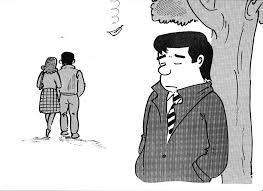记忆方法
将“passive”分解为“pas”和“sive”,想象“pas”如小溪般平静地流淌,而“sive”则像是水流的波动或涟漪,没有力量或推动。这样的联想可以帮助记忆这个单词的含义,即“被动的”或“缺乏行动的”。
以上内容由AI生成, 仅供参考和借鉴
中文词源
passive 被动的,消极的
来自拉丁语pati,忍受,承受,词源同passion.即承受的,引申词义被动的,消极的。
英语词源
- passive (adj.)
- late 14c., in grammatical sense (opposed to active), Old French passif "suffering, undergoing hardship" (14c.) and directly from Latin passivus "capable of feeling or suffering," from pass-, past participle stem of pati "to suffer" (see passion). Meaning "not active" is first recorded late 15c.; sense of "enduring suffering without resistance" is from 1620s. Related: Passively. Passive resistance first attested 1819 in Scott's "Ivanhoe," used throughout 19c.; re-coined by Gandhi c. 1906 in South Africa. Passive-aggressive with reference to behavior is attested by 1971.
权威例句
- 1. Even passive acceptance of the regime was a kind of collaboration.
- 即使被动接受该政权也是一种通敌行为。
- 2. She hates playing the sweet, passive women that audiences identify her with.
- 她讨厌扮演那些漂亮可爱、消极被动的女人,观众们已把她定型为这类角色。
- 3. He played a passive role in the relationship.
- 他在他们的关系中处于被动地位。
- 4. In spite of my efforts the boy remained passive.
- 尽管我努力,那男孩还是不起劲.
- 5. We should translate this sentence in passive voice.
- 我们应该用被动语态翻译这个句子.
